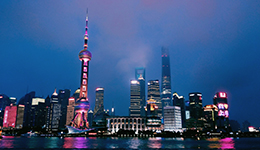
How long does it usually take for registration company in Shanghai?
As you know, Shanghai always be the priority selection for enterprises in China.However, there are so many key information you need learn.Tanikawa will help you to learn the first information about registration company in Shanghai: How long does it usually take for registration company in Shanghai?1. The Industrial and Commercial Bureau generally takes 5-7 days to check the company name (depending on the difficulty of the company name and the number of words in the company name to determine the time of the nuclear name)2. It takes 5-15 days to submit the materials;3. It takes about 5 days to obtain a license according to the regulations of the Industry and Commerce Bureau;4. Engraved the company stamp takes 1-2 days;5. The tax check takes about 2 days;6. It takes 1-2 days for the bank to open an account.
China's power generation rises 7.2% in first 10 months
China's power generation rose 7.2 percent year-on-year in the first 10 months of 2018, official data showed Wednesday.In October alone, China generated 533 billion kilowatt-hours (kWh) of power, up 4.8 percent year-on-year, faster than the 4.6-percent growth in September, according to the National Bureau of Statistics.The average daily power generation reached 17.2 billion kWh, edging down from 18.3 billion kWh in September.China saw a faster growth rate of hydroelectricity, nuclear power, and solar power generation in October.Hydroelectricity climbed 6.2 percent year-on-year, 2.1 percentage points higher than that in the previous month, as more water came from the provinces of Yunnan, Sichuan, and Guizhou.Nuclear power saw a faster growth rate in October, surging 25.1 percent year-on-year, with new units in operation.Due to better sunlight, solar power generation jumped 18.8 percent year-on-year, 15.9 percentage points higher than that in September.Thermal and wind power generation rose 3 percent and 4.2 percent from a year earlier, respectively.In the January-October period, new energy power generation accounted for 10.2 percent of the total power generation.Source: China Daily
The measures for improving the business environment
In order to improve the business environment in China, and improving the operation quality for enterprises. The General Office of the State Council issued some measures for improving business environment. Strengthen the construction of a credible governmentAll regions and departments must regard government integrity as an important part of optimizing the business environment, and establish and improve the mechanism of “government commitment + social supervision + accountability for trustworthiness”. All regions should sort out the government's distrust of enterprises, propose measures to solve the problems in accordance with the law, and study and establish compensation and relief mechanisms that damage the legitimate rights and interests of enterprises due to government planning adjustments and policy changes. Effectively protect the fair treatment of foreign-invested enterprisesThe Development and Reform Commission and the Ministry of Commerce shall, before the end of March 2019, comprehensively clean up and remove the access restrictions that are not included on the negative list of foreign investment, achieve the same standard of domestic and foreign investment in market access. Further simplify the investment approval of enterprisesThe Development and Reform Commission should take the lead in optimizing the approval process for investment projects. Before the end of 2018, the unified name and application materials for investment approvals will be announced. In 2019, all kinds of investment approvals will be processed online. In 2019, documents will be issued to guide local investment project commitment system reform.Accelerate the construction of intellectual property protection systemThe Intellectual Property Office should take measures to improve the quality and efficiency of patent and trademark registration examinations, comprehensively promote the electronicization of trademark registration.
9 cities to ease entry for foreign companies
As part of the strategy for further opening-up, nine cities in eastern China's Yangtze River region have teamed up to introduce 30 new measures allowing foreign companies to establish or grow their business in the region more easily.The nine cities include Shanghai; Hangzhou, Zhejiang province; Suzhou, Jiangsu province; and Hefei, Anhui province. Combined, they boast a population of 49 million people and cover one-fourth of the delta region.The new measures, announced at a news conference on Thursday during the ongoing China International Import Expo in Shanghai, include forming a shared network for the administration of business applications, so that licensing work for individuals or enterprises in one city can be applied in any of the other eight.Collaboration by the member cities that are involved in, or located along, the China Railway Express to Europe will also be enhanced, including more efficient customs clearances.The cities will also take the lead in erasing limits on foreign companies' ownership of local banks and asset management companies, and will permit foreign banks to set up local branches."It is both an honor and a responsibility for Hefei to join better-developed cities like Shanghai and Hangzhou to initiate a new phase of economic opening-up," Song Guoquan, Party secretary of Hefei, Anhui province, said at the news conference.The measures that were introduced are in line with the keynote speech delivered by President Xi Jinping at the opening ceremony of the expo on Monday, elevating integrated development of the delta region to a national strategy.It is expected that by taking advantage of each other's strengths, the alliance will become a growth engine for the region's technical and economical development.A purchasers' association has also been formed to extend the effect of the six-day Expo, with 705 enterprises from the nine cities signing up as initial members.It is estimated that by Thursday, purchasers from the nine cities will have placed orders at the Expo with a total value of nearly 38 billion yuan ($5.48 billion), of which 25 billion yuan is for advanced manufacturing.The alliance was pioneered by Shanghai's Songjiang district in 2016. It wanted to create a science and technology valley along the G60 highway running through the Yangtze River Delta region on the order of Route 128 in Boston, Massachusetts, in the United States. Dubbed America's Technology Highway, the Boston route is known for opening the technology age with its proximity to university labs such as the Massachusetts Institute of Technology."As China is looking to drive its economic growth with a new and higher-quality phase of opening-up, the role of technology and innovation has been unprecedentedly essential," said Gao Yiyi, deputy head of Songjiang district and director of the nine-city alliance office.Source: China
Shanghai Economic and Information Committee published "Shanghai Industry Maps"
Shanghai is the important economic, transportation, technology, industrial, financial, exhibition and shipping center in China, and it is one of the largest metropolitan areas in the world. Shanghai Port has the highest cargo throughput and container throughput in the world, and it is a good coastal international port. Shanghai is also the location of the “China (Shanghai) Free Trade Pilot Zone”, the first free trade zone in mainland China. The Yangtze River Delta urban agglomeration formed by Shanghai, Jiangsu, Zhejiang and Anhui, and has become one of the six world-class urban agglomerations in the world.Shanghai has a strong industrial gene, and has gathered a number of high-end service industries such as finance, shipping logistics, modern commerce, information services, cultural creativity, tourism exhibitions, etc., and has cultivated a number of advanced manufacturing industries such as automobiles, electronic information, equipment, steel, and petrochemicals. Shanghai has gradually formed an industrial space layout in which the central city is dominated by modern service industries and the suburbs are dominated by advanced manufacturing.On the 7th Nov., Shanghai Economic and Information Committee published "Shanghai Industry Maps". The relevant person in charge of the Shanghai Economic and Information Committee said that they hope through the guidance of "Industry Maps" to provide effective service with all types of investors, promote the accurate matching between major projects and industrial maps, guide social capital to focus on key areas, and accelerate the construction of industrial clusters, promotes the high-quality development of the economy and enhances the urban economic density.
China aims to increase its imports of services
China plans to increase its service-sector imports over the next five years in a bid to satisfy ever-increasing domestic demand and contribute more to global trade, according to a government report issued.China's total services imports are expected to reach $2.5 trillion over the next five years, according to the report.That would account for more than 10 percent of the world's total services imports, according to the report, released during the ongoing China International Import Expo in Shanghai.The move is part of China's long-term goal, announced by President Xi Jinping at the opening ceremony of the expo, to allow total services imports to exceed $10 trillion within the next 15 years.Xian Guoyi, head of the Ministry of Commerce's services trade department, said China's services imports have improved the lives of Chinese people, facilitated domestic industrial transformation and upgrading, and brought new opportunities for global trade growth.China will deepen the opening-up of its services sector, boost high-quality services imports and build platforms to facilitate these goals, Xian said at a news conference.Trade in services refers to the sales and delivery of intangible products such as insurance, transportation, tourism, telecommunications and advertising.China has been the biggest contributor to the global growth of services imports, the report said. In the past five years, its imported services have contributed 25.8 percent to the growth of services imports worldwide.In the first three quarters, China's services imports amounted to 2.61 trillion yuan ($377.4 billion), an increase of 8.9 percent year-on-year. The ministry attributed the expansion of trade in services to stable domestic economic growth, a set of opening-up measures and policy support for the sector.Wei Jianguo, vice-president of the China Center for International Economic Exchanges, said: "Increased imports can influence certain industries at first. But ultimately, homegrown companies will be motivated to deepen structural reforms, reduce administrative costs and speed up innovation. ... The whole industrial chain will be upgraded."Zhou Mi, a senior research fellow at the Chinese Academy of International Trade and Economic Cooperation, said the government's further opening-up will help effectively allocate resources and improve the business environment.Source: China Daily

Please leave us a message and we will get back to you shortly.

If you want to learn more information about investing in China, please leave your email address, we will send you the relevant information and article every month.
 0086-10-53270173
0086-10-53270173 china@tanikawa.com
china@tanikawa.com











